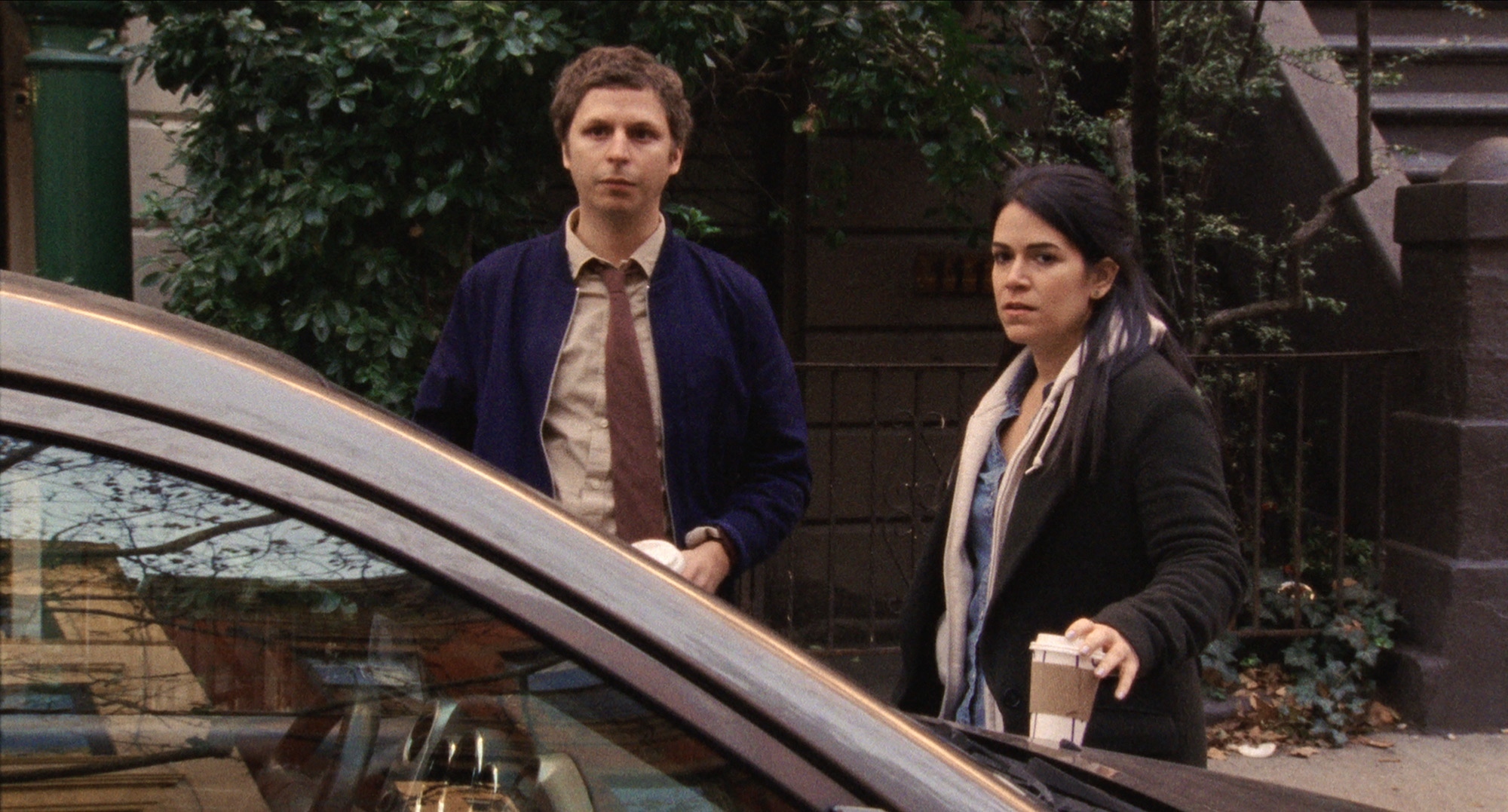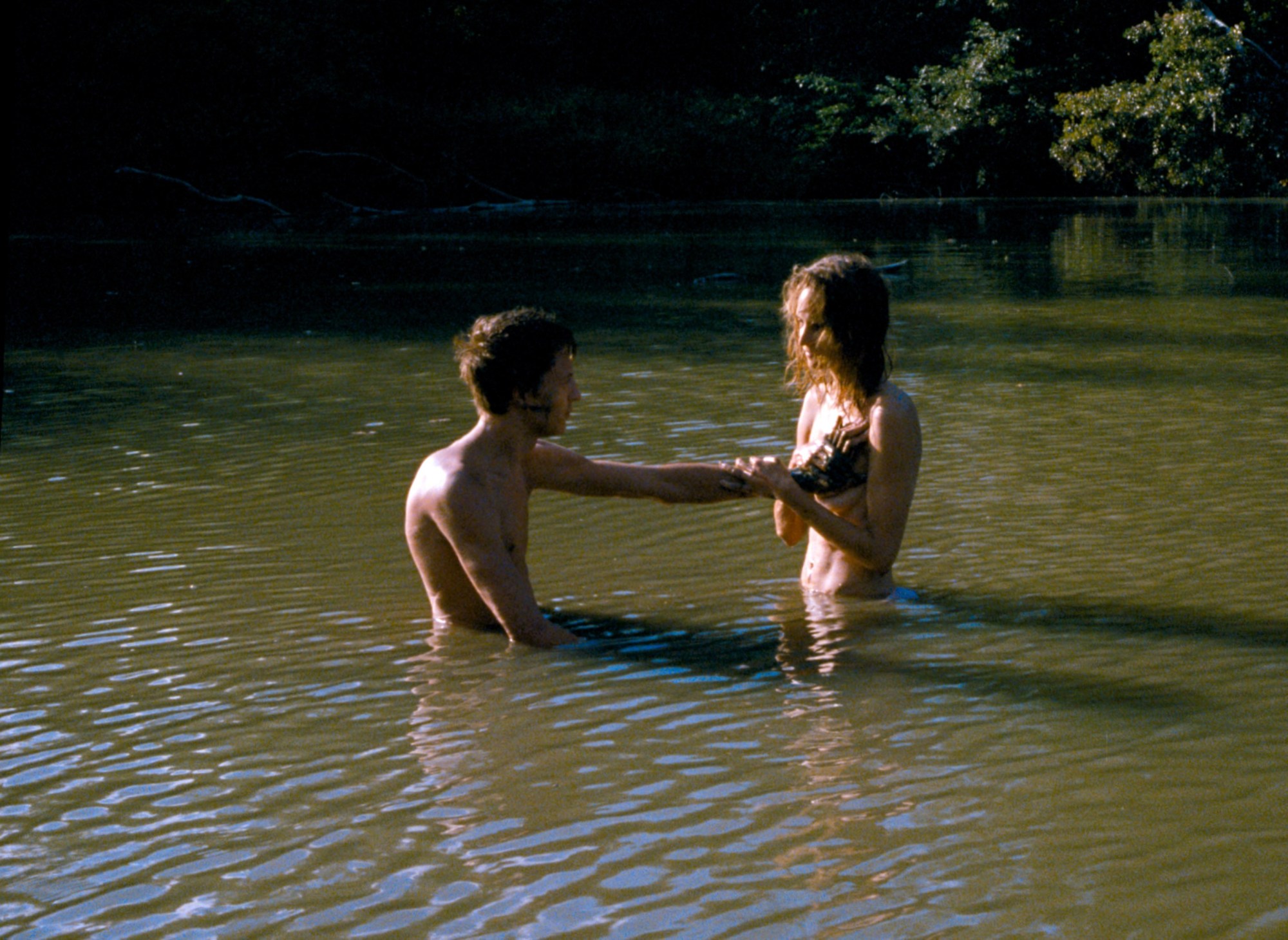Despite the supermarket of apps draining our batteries and guiding our social lives, loneliness is no less real in 2017. Dating has become swiping, words have become emojis. In a world where we are all so connected, how can we still feel so disconnected? The films showing at the New Directors/New Films festival this week, presented by the Museum of Modern Art and the Film Society of Lincoln Center, try to answer this question. Softhearted films Beach Rats and Four Days in France depict queer protagonists trapped on a dizzying carousel of anonymous hook-ups. Person to Person, starring Michael Cera, Abbi Jacobson, and Tavi Gevinson, explores the brief cameos we make in each others’ lives: from quick collisions on the sidewalk to high school friendships with expiration dates.
No matter where we live, so much of young adulthood is about striving to create intimate relationships with people like us. These five films from around the world illustrate the challenge of fulfilling this desire in 2017.

Person to Person
This wild offbeat-comedy explores the unpredictable bustling of New Yorkers’ lives through disconnected storylines and characters. In under two-hours it manages to cover: revenge porn, a murder case, and a search for a rare jazz record. The film is an expansion of director Dustin Guy Defa’s 2014 short film of the same title and again stars Defa’s personal friend Bene Coppersmith. The ensemble cast is well-stocked: Abbi Jacobson is a journalist flustered by her first day on the job, Michael Cera plays Jacobson’s heavy-metal-loving boss, and Rookie founder Tavi Gevinson plays a high-school student slowly growing apart from her best friend.
While very much about our chaotic present, the film communicates a warm, textured nostalgia for the past. Defa was adamant about shooting Person to Person on 16mm film — despite having to drive the prints all the way to Baltimore (where the nearest Kodak lab to NYC is located).”A lot of the film for me is about connections,” he says. “The different ways people can connect or want to connect, but are not able to.”
The Future Perfect
Young adulthood can sometimes feel like a constant act of assimilation: wearing the right clothes, saying the right things, keeping up with the latest. At least, that is the struggle to fit in experienced by the protagonist of The Future Perfect: a Chinese teenager who has recently moved to Argentina and enrolled in a beginner Spanish class.
Directed by Argentina-based German director Nele Wohlatz, the deadpan film follows Xiaobin as she strives to finds meaning and a sense of place in her new home. She begins a stiff, innocent romance with a fellow student from her language class, Vijay, who has recently immigrated from India. But it isn’t until the class begins learning the conditional future tense (which is not used in everyday Mandarin Chinese) that her assimilation truly begins. The ability to speak of possible futures opens up new horizons for Xiaobin.
Happy Times Will Come Soon
This sleepy Italian film centers on two teenage boys and a girl left to their own devices in what feels like an enchanted forest. Featuring time travel and a tense love triangle, director Alessandro Comodin’s magical-realist plot feels as hazy and nonsensical as an adolescent daydream and crawls at a caterpillar’s pace. But this is exactly what makes Happy Times Will Come Soon feel like a postmodern fairy-tale.
The film opens with two World War II soldiers running away from their troop and hiding in the woods, where they relish their newfound freedom. When a girl in present-day Italy bravely enters a mysterious hole in the ground and lands upon the boys, a sun-bathed romance follows. The idea for the project came to Comodin after talking to an Italian veteran about his World War II experiences. “It was because he reminisced on a lost young period of his life,” Comodin explains. The director employed experimental techniques to capture the raw beauty of his young actors. He gave the actors no scripts (“I don’t trust in dialogue,” he says) and told them to talk, or not, as much as they liked.
Beach Rats
Like Moonlight, Eliza Hittman’s Beach Rats reminds us that, despite the political and legal advancements of LGBT rights, the queer experience can still be bleak for those living on society’s fringes. To really drive the point home, Hittman sets her story in Sheepshead Bay, the working-class, ungentrified edge of Brooklyn.
Teenage delinquent Frankie spends his summer days loitering on the boardwalk, drinking, and lifting weights. He has a girlfriend but passes most of his nights searching for hookups with older men through a local chat room. The method feels outdated for 2017 (like trawling Craigslist ads for dates), and you can’t help but wonder why Frankie prefers this mode of cruising over more convenient and popular apps like Grindr and Tinder. But this is typical Frankie: random, unthoughtful, and inconsistent. Like so many closeted queer teens, Frankie has mastered the art of repression and impulsive behavior. And it is the macho teenager’s seeming lack of emotion that tugs at your heartstrings. When the film ends, the questions surrounding his sexuality remain frustratingly unresolved. In one scene, Frankie’s girlfriend lays next to him in bed and asks if she’s pretty. It is a half-hearted question, requiring only a quick, mindless “Yes.” But for some reason, Frankie refuses to answer it. Most likely because he is unsure of the answer.
Four Days in France
The protagonist of Four Days in France is, by contrast, well acquainted with Grindr. After dropping everything in his life (including his boyfriend) one morning, Pierre drives his Alfa Romeo around France, letting the locations of the guys he meets on the app guide him. Meanwhile, Pierre’s partner tracks him down through Grindr. Fiercely determined, Paul creates fake profile after fake profile and tries to fool Pierre into messaging him a location pin. There’s a heart-wrenching shot of Paul leaning intently over a map, circling the 30-mile radius Pierre is likely to be in. He drives from one side to the other, searching.
Directed by Jérôme Reybaud, Four Days in France poignantly illustrates the anonymous, ephemeral connections intrinsic to the queer experience and propelled by apps like Grindr, Scruff, and Jack’d. One of Pierre’s hookups, an older man, suddenly stops the encounter and sighs, “We’ve talked too much. It’s only fun when you don’t know anything about the other person.” The film depicts a man uncomfortable with the restraints and predictability of an adult relationship, reverting to the wandering and aimlessness so central to youth. The most-used phrase in the film? “Au revoir.”
You can find more information about the New Directors/ New Films Festival here.
Credits
Text André-Naquian Wheeler
